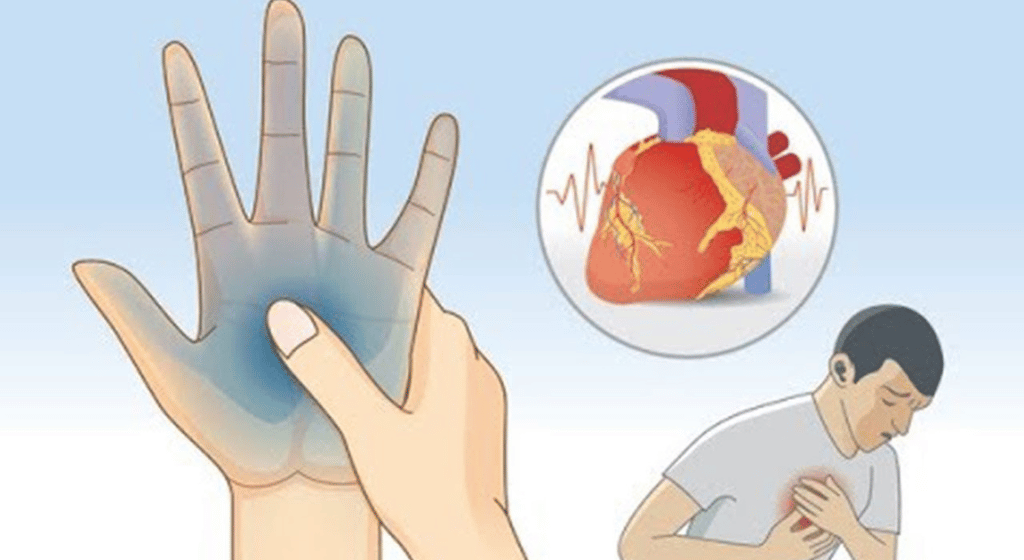The most important signs that you have a magnesium deficiency and what to do about it
Magnesium deficiency is a rare health problem, but many people can suffer from it. What are the symptoms of magnesium deficiency?
Usually, symptoms indicating a person’s magnesium deficiency do not appear until the deficiency becomes severe, which may lead to complications, some of which are serious.
We will review the following symptoms of magnesium deficiency:
Symptoms of magnesium deficiency
Early and advanced symptoms of magnesium deficiency include:
The first symptoms of magnesium deficiency
Includes the following:
tired.
Anorexia.
Muscle spasms.
nausea.
weakness.
Symptoms of advanced magnesium deficiency
The most important symptoms of magnesium deficiency that some people may suffer from are the following:
Muscle spasm
Sometimes, muscle spasms and strange tremors are symptoms of magnesium deficiency, and in the worst cases, magnesium deficiency can cause seizures.
Scientists believe that this is due to the influx of calcium in large quantities into nerve cells, causing over-stimulation of nerve cells in the muscles.
It should be noted that magnesium supplements can be used to treat deficiency in adults and young people, while they may not be beneficial in the elderly.
Other conditions that can cause muscle spasms include:
pressure.
Increase the percentage of caffeine in the body.
Taking certain medications.
Suffering from a neurological disease, such as neuromyositis.
psychological diseases
Magnesium deficiency can cause some psychological diseases, such as:
Apathy: Psychologically defined as numbness in feelings.
Depression: Its deficiency increases the chances of developing it.
Insomnia: Although research is still in its early stages to determine whether magnesium deficiency is related.
Delirium: Severe magnesium deficiency can cause delirium or even coma.
Osteoporosis
There are many factors that can increase your risk of osteoporosis, including:
- To get old.
- He doesn’t exercise.
- Low levels of vitamin D and vitamin K.
- Magnesium deficiency.
- Magnesium deficiency can not only weaken bones, but also reduce blood levels of calcium, an important element in building bones. Some studies in mice have indicated that magnesium deficiency can lead to decreased bone mass.
Fatigue and general muscle weakness
Fatigue is a symptom of magnesium deficiency. This is a health problem that can be psychological or physical, and can sometimes be a sign of magnesium deficiency in the body. Although general fatigue often means nothing more than a simple need for rest, severe and persistent fatigue can be a sign of a health problem.
It should be noted that fatigue alone is not considered a clear symptom of a specific health problem unless it is accompanied by other symptoms. When magnesium is deficient, general fatigue is usually accompanied by muscle weakness, a health problem called myasthenia gravis.
Scientists believe that the reason for what is happening here is that magnesium deficiency causes low potassium levels in muscle cells, which may lead to muscle weakness and general weakness.
high pressure
Studies conducted by researchers on animals have shown that magnesium deficiency can lead to high blood pressure, which may increase the risk of heart disease.
Other studies have also shown that taking magnesium supplements helped lower blood pressure in people who took them regularly, but the relationship between blood pressure and magnesium deficiency is still under study.
He has asthma
Researchers believe that a magnesium deficiency can lead to calcium accumulation in the muscles lining the bronchi and lungs, which may cause the bronchi to constrict and lead to difficulty breathing.
It should be noted that magnesium levels are generally low in people with asthma.
Heart rhythm disorder
This is the most serious symptom of magnesium deficiency because a person may suffer from an irregular heartbeat which, although not serious for some, can cause many health problems for others.
Even if an arrhythmia has no symptoms, it can sometimes be caused by:
Dizziness and dizziness.
shortness of breath.
fainting.
pain in chest.
In some severe cases, an irregular heartbeat may increase your risk of heart failure or heart attack.
Rich sources of magnesium
Eating the following foods may be enough to get your daily magnesium intake:
pumpkin seeds.
almonds.
pistachio.
popcorn.
Linum seed.
Chia seeds.
Cashews.
Hazelnut.
Oats.
Whole grains.
Leafy vegetables.



